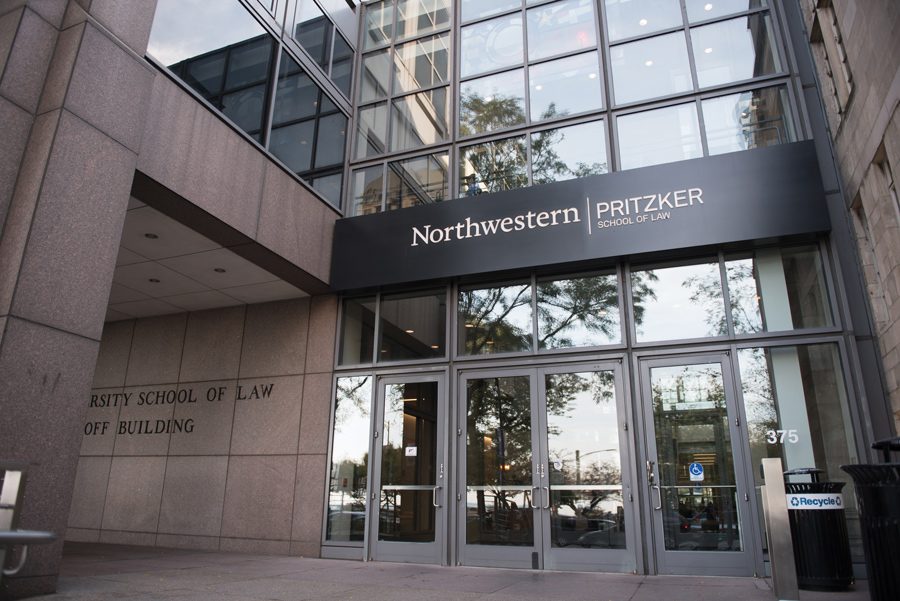Pritzker professor discusses wrongful convictions, ‘Making a Murderer’ case
Daily file photo by Katie Pach
Pritzker School of Law. Pritzker Prof. Steven Drizin, one of the attorneys on the case featured in the Netflix series “Making a Murderer,” spoke in a Tuesday Facebook Live conversation on wrongful convictions.
February 13, 2018
Pritzker Prof. Steven Drizin said that early in his career, he was asked to represent an 11-year-old boy who confessed to killing his 83-year-old neighbor. It was the moment that the boy told him, “I said I did it, but I didn’t do it,” that Drizin became “obsessed” with wrongful convictions and false confessions of children, he said.
Drizin, who defended Brendan Dassey in a case that was featured in the Netflix series “Making a Murderer,” was part of a Facebook Live discussion Tuesday on wrongful convictions.
The discussion, which had more than 10,000 views as of Tuesday night, was hosted by the Concord Law School of Kaplan University and moderated by Concord dean Martin Pritkin. The discussion was part of Concord’s Distinguished Speaker Webinar Series.
Drizin co-founded the Center on Wrongful Convictions of Youth — one of the first innocence organizations to focus on representing defendants who were minors at the time of conviction — at Northwestern’s Bluhm Legal Clinic in 2008.
The subset of false confessions data in the Innocence Project’s DNA database and the National Registry of Exonerations’ database shows juveniles are “overrepresented,” Drizin said. He added that the most recent numbers from the national registry show there are four times as many juveniles that have falsely confessed than adults.
Drizin represented Dassey after the 16-year-old and his uncle, Steven Avery, were convicted in the murder of 25-year-old Teresa Halbach. Dassey confessed during interrogation to assisting his uncle in the homicide, but later recanted his confession, claiming it was coerced.
During Tuesday’s discussion, Drizin talked about the vulnerabilities that are sometimes taken advantage of during an interrogation. Dassey faced a “double whammy” in terms of vulnerabilities, Drizin said, as he was a juvenile and had an intellectual disability.
Drizin also discussed how race and socioeconomic status can impact false confession rates, specifically in Chicago. He said there tends to be a higher percentage of black and Latinx defendants in Chicago because the Chicago Police Department has “focused their efforts on solving crime” in areas where the population is majority non-white.
However, Drizin said anyone can be taken advantage of during an interrogation due the pressure from police.
“The process of interrogation, especially coercive interrogation, can break down normal or even high intelligence given enough time,” Drizin said.
Email: [email protected]
Twitter: @alliejennaphoto












